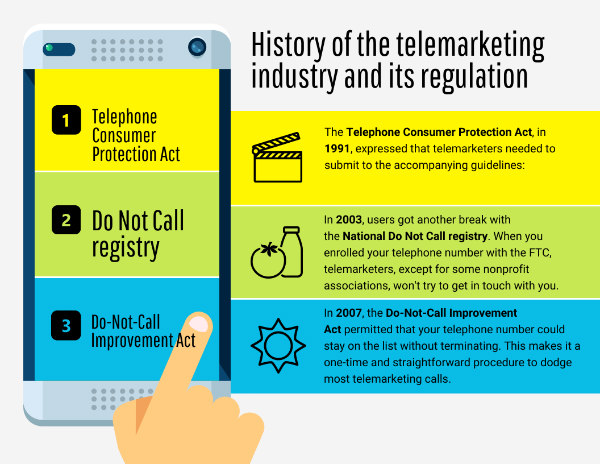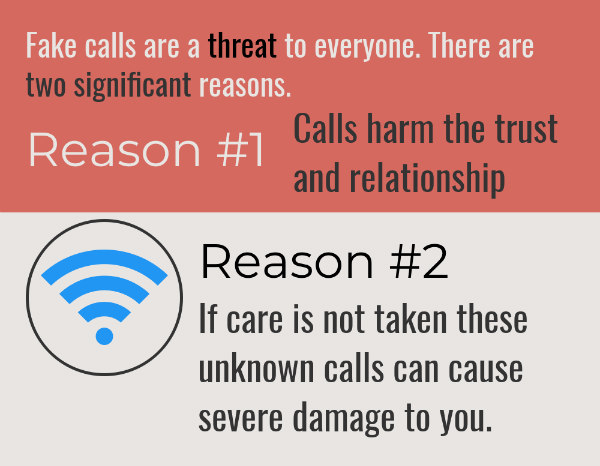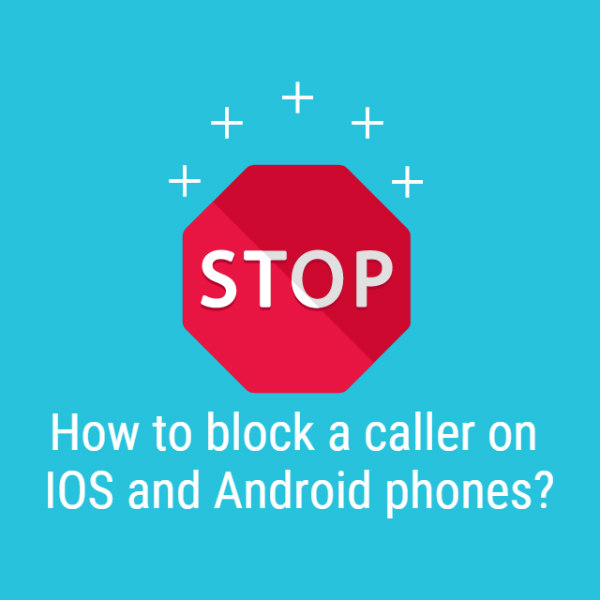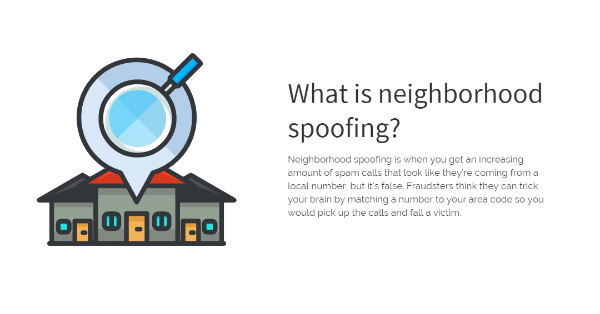Did you receive a call from a telemarketer, private or blocked number and can’t tell who called you? You aren’t the only one. Everyone gets suspicious calls. But how do you deal with them?
If someone’s phone is ringing, most people’s first instinct is to answer the phone call. However, this may not be the best choice as spammers may be able to scam you with a few simple tactics. The FTC reports that in 2017, the most common way for scammers to contact their victims was by phone.
Additionally, the top three types of scam attempts were:
Debt collection
Identity Theft
Imposter Scams
Additionally, not only can you caller be a scammer, they could also be a telemarketer or perhaps even a stalker.
Knowing who is calling you is sometimes easy as (in some cases) you can just look at your Caller ID to get the necessary caller details. However, if your Caller ID isn’t displaying the owner of the phone number in question, there’s another method that makes it easy to find out who is calling you.
In This Article, I will cover:
These questions are all important to ask as the number or spam, robocalls, and telemarketer calls continues to rise. In fact, it is expected that in 2019 50% of all calls will be robo scam calls!
So, let’s get started!
Who is calling me from a no caller ID number?
Indeed, there are lots of calls we get from these unknown callers.
It can come from Phone tricksters, friends, Exes, business competitors and the list goes on. These callers can be tricky at times; they might try to get under your skin to scam you of your hard earned money.
Despite the kind of calls you have received, the truth remains, fake calls are an intrusion of privacy and a danger to your security.
Read our guide: How to do a free reverse cell phone lookup
Need to know right now who is calling you? Enter the phone number in question by typing it in the box below.
Telemarketing has been around for quite a long time. Since a large number of these calls are spontaneous, people become troubled when receiving unwarranted calls from telemarketers.
Did a telemarketer just call me?
Telemarketing has been around for quite a long time. Since a large number of these calls are spontaneous, people become troubled when receiving unwanted calls from telemarketers.
To think “whose number is this” when an unknown number is calling is understandable as no one wants to have to deal with a telemarketer.
A telemarketer ’s practices can sometimes be unreasonable, harassing, and impolite. For example, telemarketers were known to call late during the evening or at an odd hour toward the beginning of the day, refuse to identify themselves, make rehashed calls even after they were asked not to call back again, and engage in funny practices.
Due to the volume of complaints against the telemarketing business, the legislature reacted with expanded insurance for purchasers and controls for telemarketers.
The Telephone Consumer Protection Act, in 1991, expressed that telemarketers needed to submit to the accompanying guidelines:
- Do not call anyone before 8 am or after 9 pm.
- Have an internal Do Not Call list
- Reveal your identity when calling.
- Make use of real voices and not artificial voices or prerecorded messages
- Ensure no unsolicited ads are sent by fax
Key Events
In 2003, users got another break with the National Do Not Call registry. When you enrolled your telephone number with the FTC, telemarketers, except for some nonprofit associations, won't try to get in touch with you.
In 2007, the Do-Not-Call Improvement Act permitted that your telephone number could stay on the list without terminating. This makes it a one-time and straightforward procedure to dodge most telemarketing calls.

The regulation of the telemarketing business plans to shield customers from spontaneous and undesirable calls. This doesn't imply that all telemarketers conform to the laws or that there are not deceitful telemarketing organizations that have unlisted numbers.
On the off chance that you continue accepting calls from these kinds of telemarketers, you can look through a telemarketing number and either ask that they quit calling you or report the movement to the FTC.
Why is it essential to find out who is calling me?
Fake calls are a threat to everyone. There are two significant reasons why finding out who called is essential.
Reason #1. These calls harm the trust and relationship between you and your smartphone. It can be annoying when we see new telephone numbers showing up on our caller ID.
The thoughts that cross through our minds are:
Who could be calling right now?
Would it be a good idea for me to answer?
Could it be a robot call or telemarketer calls?
Reason #2. If care is not taken these unknown calls can cause severe damage to you. It doesn't take much for blocked or new telephone calls to be considered phone badgering and unlawful. Phone badgering happens when somebody plans to bother, undermine, or trick you by:
Persistently making the phone to ring.
Making disgusting remarks, proposals, or solicitations.
Declining to reveal one's identity via telephone.
Making rehashed phone calls, particularly after you have asked for not to be reached again.
Endeavoring to take yourpersonal and private data via telephone.
Putting on a show to be somebody they are not.

Trying to distinguish who called you from a blocked telephone number is no simple accomplishment. That can be disappointing in telephone badgering conditions because few solutions put an end to the annoying telephone calls. So you have to find out who called you and how you can stop the calls if it persists.
The question then remains,
How can you stop unwanted callers from calling you again?
How to stop unwanted calls: Rule #1. Block each number one by one
If you have a specific number that keeps calling, it's easy to block it permanently from your phone.
How to block a caller on IOS and Android phones?
On iOS,
- Go to the Phone app
- Check your Recent calls
- Tap the number you want to block.
On Android, the process isn’t much different:
- Go to the Recent call lists on the Phone app,
- Double tap the caller you want to block.

Again, this will require more work on your part to keep the scammers away.
How to stop unwanted calls: Rule #2.
You can pay your carrier to protect you
Many mobile providers have taken steps to protect you from unsolicited phone calls, but you have to pay a monthly fee for their service. Examples of such mobile provider are AT&T.
AT&T has a free application (Call Protect) that is intended to block specific telemarketer calls or fake robocalls from contacting you, and you won't need to do anything other than installing the app on your telephone.
It won't block spam calls or telemarketer; instead, when the cell phone rings, Call Protect will recognize those callers as "Suspected Spam" and give you the choice of preventing their number later on. You can manually block any number and report such numbers to improve their database.
Note: this service is available to postpaid users only and also the suspected spam feature works just in AT&T HD voice coverage.
T-Mobile Scam ID and Scam Block: This is a free service for all postpaid users. T-Mobile includes two network-level layers of protection against robot callers.
How it works
First, it will identify unknown callers.
You can choose the option of Scam Block to stop calls from popping up.
Dial #ONB# (#662#) to turn on Scam Block and #OFB# (#632#) to disable it from your T-Mobile.
The paid T-Mobile option can identify any callers’ location, name, and even block any personal number but for a fee of $4 per month. However, you can block up to 5 digits but expires after 90 days.
How to stop unwanted calls: Rule #3. Use other apps that require minimal subscription monthly.
These services depend on updating list of spammers, fraudsters and use that database to stop unwanted calls.
How to stop unwanted calls: Rule #4. Enable the do not disturboption to allow calls from your contacts.
On both Android and iOS, you can enable Do Not Disturb mode to permit telephone calls from just those individuals and organizations in your contacts list. This is an entirely exceptional, massive answer to the issue of robocalls, and you're in all likelihood going to miss calls that you would've gotten a kick out of the chance to have replied. Be that as it may, those calls will go to a voice message, and after that, you can add that number to your contacts if you choose to.
What is neighborhood spoofing?
Neighborhood spoofing is when you get an increasing amount of spam calls that look like they’re coming from a local number, but it's false. Fraudsters think they can trick your brain by matching a number to your area code so you would pick up the calls and fall a victim.
All thanks to the robot call blocker apps which have become better at identifying neighborhood spoofing.

Are telemarketers still calling? Attempt these three steps
Tip #1. Pick up the phone
Try not to answer their inquiries. Just let them know, "Please put me on your Do Not Call list.” Keep rehashing that sentence until they get tired and end the call.
Tip #2. Request to speak to the administrator
On the off chance that they call you again even after you've instructed them to stop, it may be because the past telemarketer failed to put you on their do not call list. Have their administrator do it.
Tip #3. Report to FTC
When nothing from the above suggestion works, the next thing to do is report these callers to the FTC. The FTC law states that the stipulated period for a telemarketer sales call is 31 days and all sales calls must stop. They won't deal with all complaints but will help settle specific measure of unwanted or scam calls.
What Does It Mean When My Phone Number Shows Up On My Caller ID?
You might wonder why your number is showing up on your Caller ID. Unless you dial your own number, you are a victim of the “Are You Calling Yourself” scam. Obviously, the call isn’t from your own phone number which might make you wonder “whose calling me?”
Scammers will use the same type of software that they use in their “neighborhood spoofing” attempts. So, if your own phone number is calling you, just don’t answer it.
Bringing It All Together
I hope this piece has been able to enlighten you about how to deal with unwanted calls. If you have other ways of preventing or blocking these telemarketer calls, fake calls, fraudster calls or robot calls that are not listed here, kindly share it in the comment box.